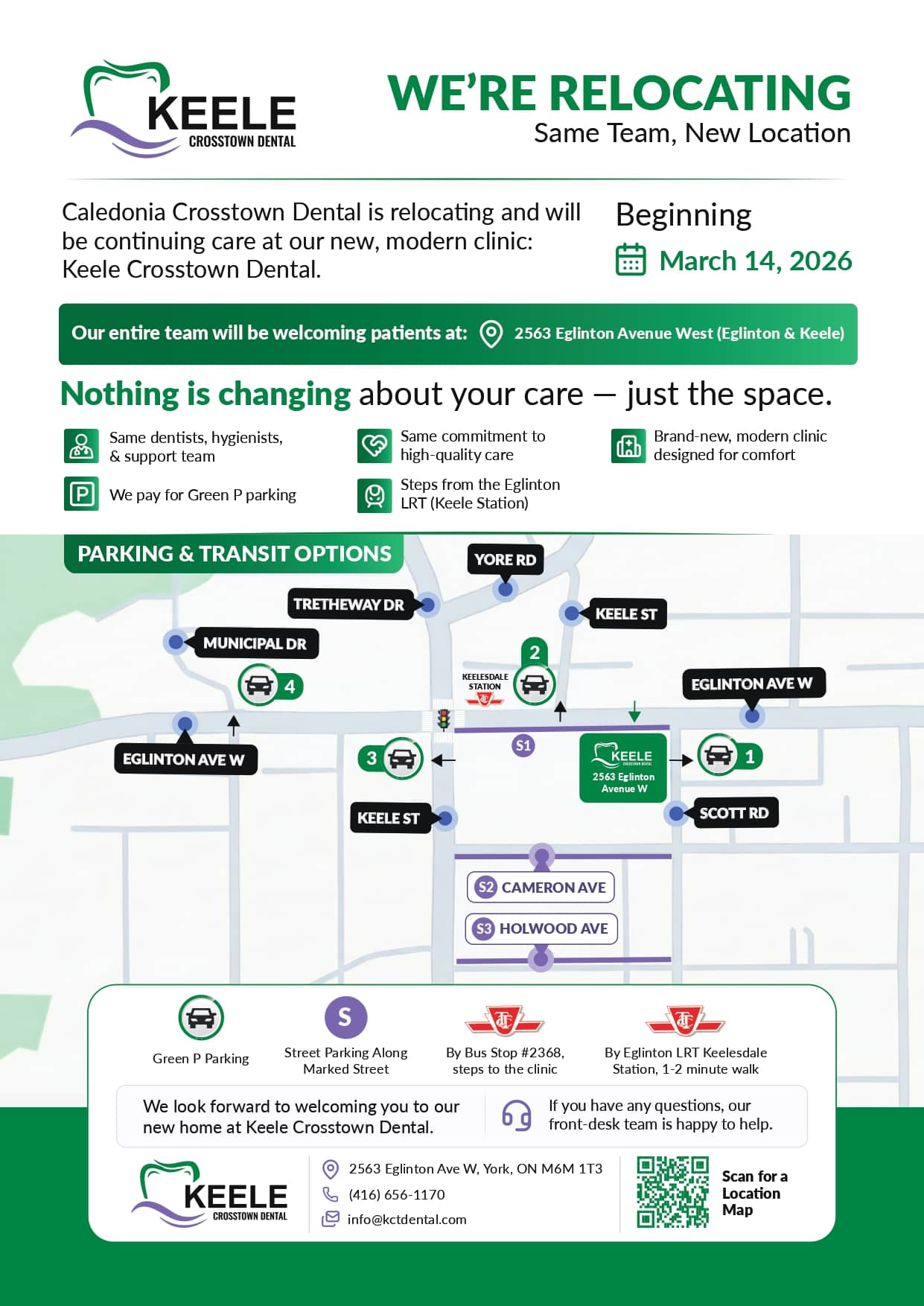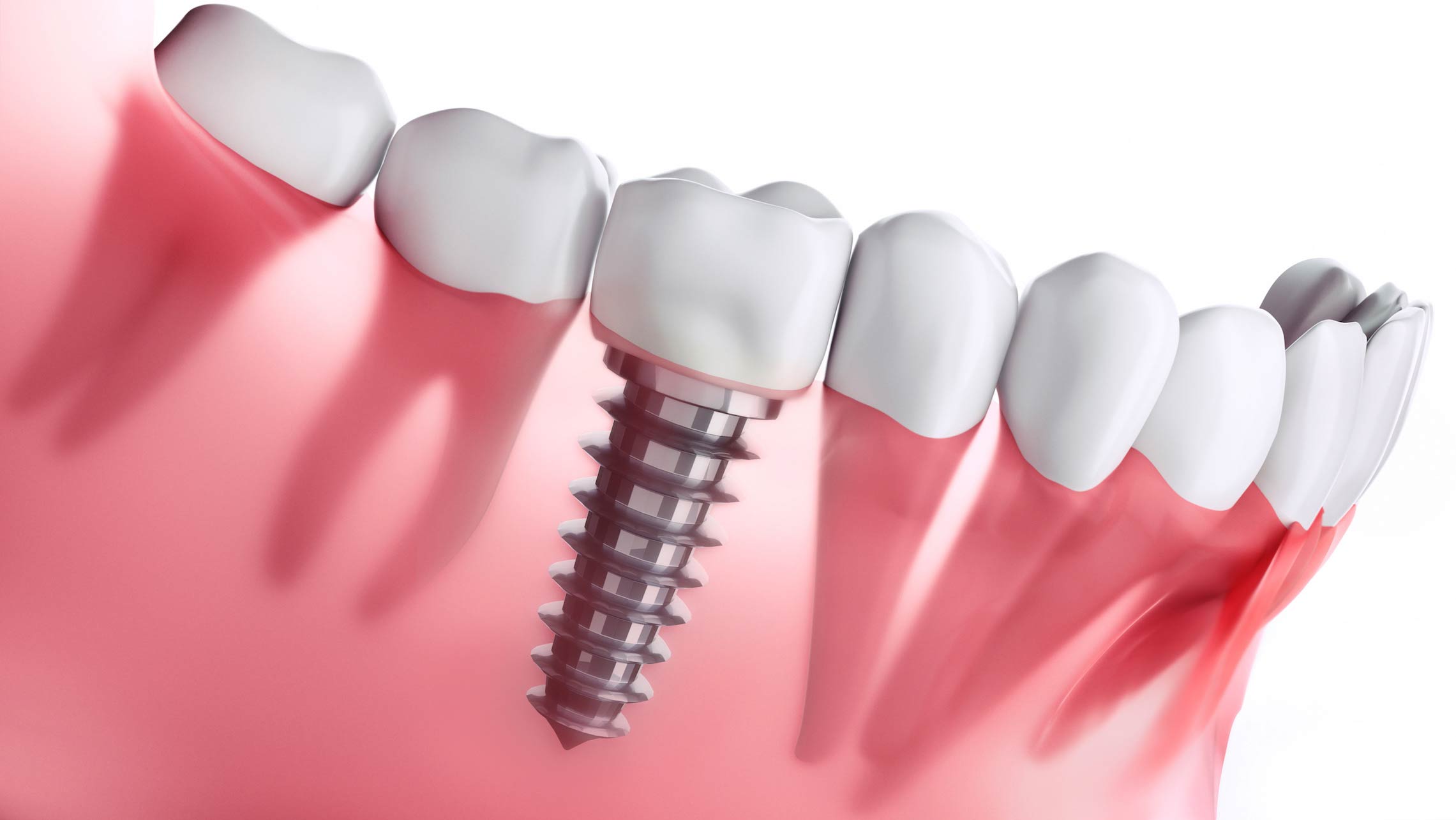Getting dental implants can be a life-changer. While dental implants are considered a safe procedure, it’s natural to wonder about the risks involved in getting dental implants.
If you’re looking to get dental implants in York, this guide will help you understand their safety, their complications, and your risk factors and help you make informed choices!
What Makes Dental Implants Safe?
Dental implants are modern and one of the most popular treatments to replace missing teeth. Dental implants are widely accepted as safe and have high success rates (95%+). The materials used for implants (titanium) are biocompatible, meaning they do not harm the body.
In some cases, dental implants can fail. However, implants need to be done right.
For example, it is essential to work with a dentist near you who only performs implant dentistry and has experience in not only placing the implants but also planning, imaging, and placing the dental implant to minimize any failures or complications.
Are Dental Implants Safe for Everyone?
Although dental implants are safe, there are risk factors that will increase the risks you face when getting dental implants.
Patients with diabetes, heart conditions, or poor bone quality/health will be approached differently when planning their dental implants. The answer to whether dental implants are safe can vary from patient to patient.
To begin the dental procedures, your dentist will more than likely provide a complete oral exam, with X-rays, before reviewing your medical history.
In certain instances, the conditions will dictate that you may need a bone graft or have to go through some additional steps to prepare your mouth before beginning the next steps.
What Should You Know About Implant Safety Concerns?
Understanding dental implant safety concerns helps you make better decisions. Here are a few issues that sometimes arise:
- Poor oral hygiene after placement
- Smoking, which affects healing
- Incorrect placement of the implant
- Infections around the implant site
- Nerve or sinus complications (in rare cases)
Choosing an experienced dental professional and following aftercare guidelines are the best ways to reduce these concerns.
What Are the Risks of Dental Implant Surgery?
Although the surgery is considered minor, there are still some risks of dental implant surgery to know about:
- Infection at the implant site
- Nerve damage causing numbness or pain
- Sinus problems for implants in the upper jaw
- Implant failure if the bone does not fuse with the post (osseointegration)
These issues are rare and often avoidable with proper care and technique. Your dentist will provide pre- and post-operative instructions to help prevent these problems.
Can Dental Implants Affect You in the Long Run?
Let’s talk about the long-term effects of dental implants. When properly cared for, implants can last 15 years or more. Some even last a lifetime, but that doesn’t mean they’re maintenance-free.
You still need to:
- Brush and floss daily
- Avoid using your implants to chew hard objects
- Visit your dentist for regular checkups
- Poor habits can lead to gum disease or implant loosening over time.
What Happens If Something Goes Wrong After Implant Surgery?
Even after a successful surgery, there can be complications after dental implant placement. Some signs to watch for include:
- Swelling or pain that doesn’t go away
- Loose implant or crown
- Bleeding or pus around the implant site
- Fever or general illness
If you notice these signs, call your dentist right away. Early treatment helps protect your implant and your health.
Are Dental Implants Right for You?
Here’s a quick overview of what you need to know:
| Concern | Details |
| Safety | Generally very safe with a 95%+ success rate |
| Risks | Infection, nerve damage, and sinus issues |
| Long-term outlook | Can last decades with good care |
| Who should be cautious | People with diabetes, bone loss, or health issues |
| How to avoid problems | Choose an experienced dentist and follow care tips |
Final Thoughts
Dental implants offer one of the most reliable ways to replace missing teeth. While the risks exist, they are usually small when treatment is done properly. If you’re concerned about safety, take time to speak with a skilled dental provider.
At Caledonia Crosstown Dental Centre, our team is committed to making your implant journey as safe and successful as possible. Book your consultation today to explore if implants are the right choice for you.
FAQs About Dental Implants and Safety
- How painful is the dental implant procedure?
The surgery is usually done under local anesthesia. Most people report only mild discomfort after the procedure.
- How long does it take to heal after getting implants?
Healing can take 3 to 6 months, depending on your oral health and whether bone grafting was needed.
- What can I eat after dental implant surgery?
Soft foods like yogurt, soup, mashed potatoes, and smoothies are ideal for the first few days.
- Can dental implants fail years later?
Yes, although rare, long-term failure can happen due to poor oral hygiene, smoking, or gum disease.


